
Stone Town: The Heartbeat of Zanzibar
Stone Town, the historic center of Zanzibar City, is a mesmerizing blend of cultures, history, and stunning architecture. As you wander its labyrinthine streets, you'll find yourself transported back in time, surrounded by the echoes of centuries-old stories. The town's narrow alleyways are lined with ancient buildings, boasting intricate wooden doors and latticework balconies, giving a glimpse into its rich Swahili, Arab, Persian, and European influences. Stone Town is a UNESCO World Heritage Site, and it's easy to see why. The town is a treasure trove of historical sites, from the House of Wonders to the Old Fort, each narrating tales of a bygone era. The bustling Darajani Market is a sensory overload with its vibrant colors, aromatic spices, and the lively chatter of vendors and locals. Don’t miss the chance to visit the Anglican Cathedral, built on the site of the former slave market, a poignant reminder of the city's complex past. Beyond its historical allure, Stone Town is alive with contemporary culture. The town's waterfront is the perfect place to unwind, watching dhows sail by as the sun sets over the Indian Ocean. The nightlife offers an array of options, from charming rooftop bars to lively music venues. With its unique blend of heritage and modernity, Stone Town promises an unforgettable experience for every traveler.
Local tips in Stone Town
- Wear comfortable shoes as you'll be walking on uneven cobblestone streets.
- Carry cash, as many small shops and markets do not accept credit cards.
- Hire a local guide to uncover hidden gems and learn more about the town's rich history.
- Dress modestly to respect local customs, especially when visiting religious sites.
- Try the street food at Forodhani Gardens Night Market for a taste of local cuisine.
Neighbourhoods in Stone Town
Stone Town: The Heartbeat of Zanzibar
Stone Town, the historic center of Zanzibar City, is a mesmerizing blend of cultures, history, and stunning architecture. As you wander its labyrinthine streets, you'll find yourself transported back in time, surrounded by the echoes of centuries-old stories. The town's narrow alleyways are lined with ancient buildings, boasting intricate wooden doors and latticework balconies, giving a glimpse into its rich Swahili, Arab, Persian, and European influences. Stone Town is a UNESCO World Heritage Site, and it's easy to see why. The town is a treasure trove of historical sites, from the House of Wonders to the Old Fort, each narrating tales of a bygone era. The bustling Darajani Market is a sensory overload with its vibrant colors, aromatic spices, and the lively chatter of vendors and locals. Don’t miss the chance to visit the Anglican Cathedral, built on the site of the former slave market, a poignant reminder of the city's complex past. Beyond its historical allure, Stone Town is alive with contemporary culture. The town's waterfront is the perfect place to unwind, watching dhows sail by as the sun sets over the Indian Ocean. The nightlife offers an array of options, from charming rooftop bars to lively music venues. With its unique blend of heritage and modernity, Stone Town promises an unforgettable experience for every traveler.
When is the best time to go to Stone Town?
Iconic landmarks you can’t miss
Old Fort
Discover the Old Fort, a historic fortress in Zanzibar, where culture, history, and art come together in a stunning coastal setting.
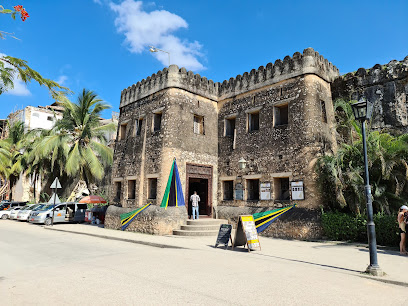
Zanzibar Spice Community Shop
Experience the rich aromatic heritage of Zanzibar at the Spice Community Shop, where the island's famous spices come to life.
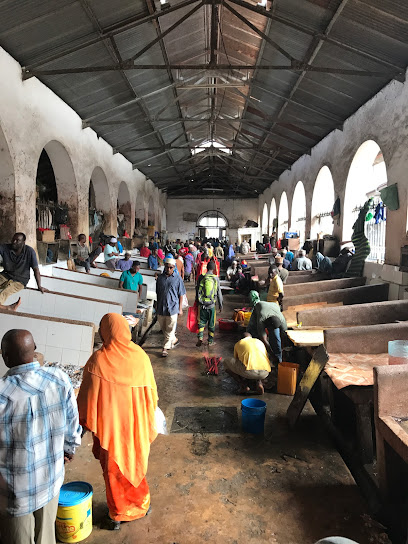
Cape Town Fish Market Zanzibar
Experience the vibrant flavors of the sea at Cape Town Fish Market Zanzibar, where fresh seafood meets stunning ocean views in a lively atmosphere.
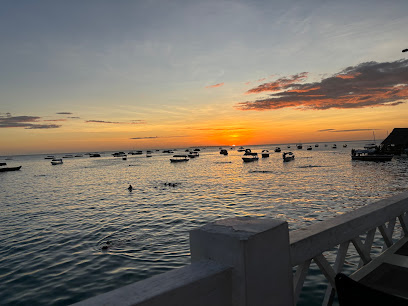
Darajani Bazaar
Discover the vibrant Darajani Bazaar, a colorful market in Stone Town, Zanzibar, filled with fresh produce, textiles, and rich cultural experiences.
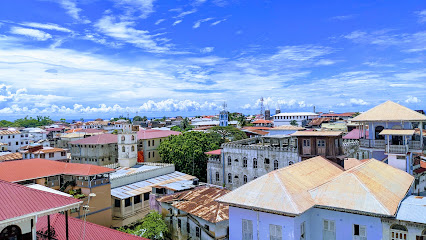
Stone town market
Dive into the vibrant atmosphere of Stone Town Market, where local culture and flavors of Zanzibar await every visitor.
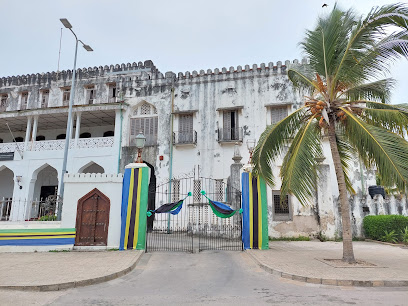
Jamhuri Gardens
Explore the lush beauty of Jamhuri Gardens in Zanzibar, a serene park perfect for relaxation and appreciating the island's vibrant flora.
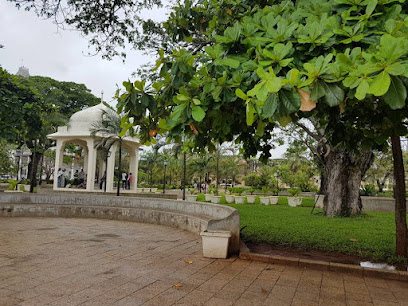
The Silk Route
Discover the flavors of India at The Silk Route, a must-visit restaurant in the heart of Zanzibar's Stone Town, offering authentic dishes in a vibrant setting.
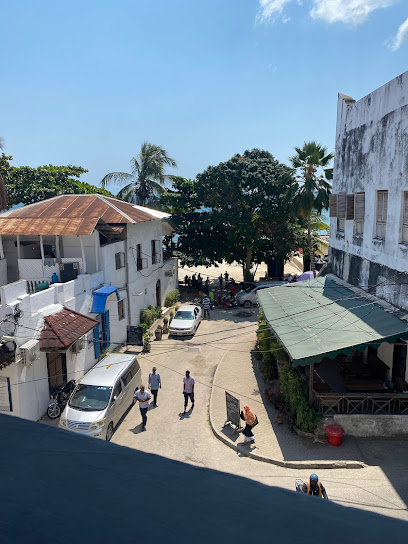
Old Slave Market/Anglican Cathedral
Explore the poignant history and architectural beauty of the Old Slave Market and Anglican Cathedral in Zanzibar's Stone Town, a must-see for history enthusiasts.
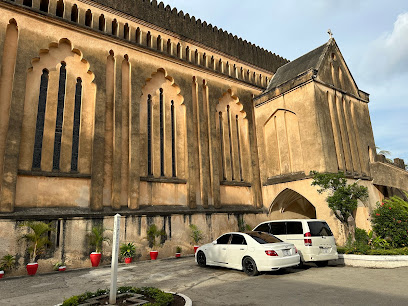
Forodhani Park, Zanzibar
Experience the vibrant culinary scene and cultural richness at Forodhani Park, Zanzibar's premier waterfront destination for street food lovers.
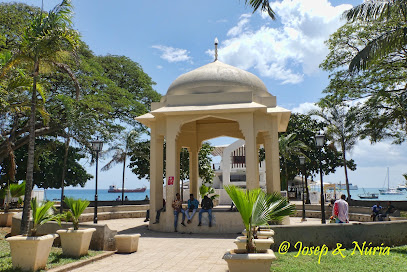
Secret Garden
Experience the flavors of Zanzibar in a serene garden setting at Secret Garden, the perfect dining destination in Stone Town.
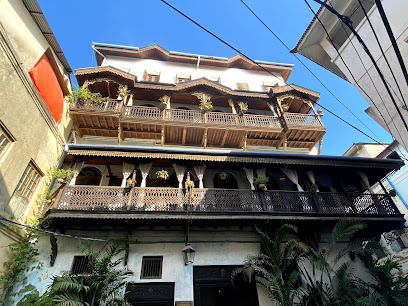
St Joseph's Cathedral
Explore St. Joseph's Cathedral in Stone Town, Zanzibar - a stunning blend of Gothic architecture and rich history in a UNESCO World Heritage site.
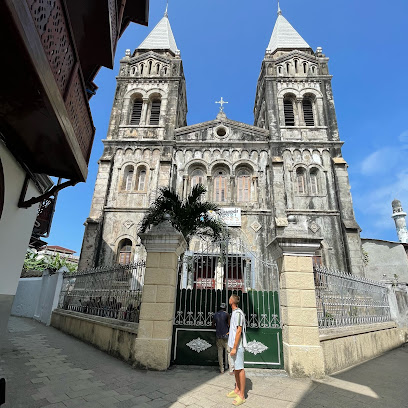
Christ Church Cathedral
Discover the rich history and architectural beauty of Christ Church Cathedral, a serene oasis in the heart of Zanzibar's Stone Town.
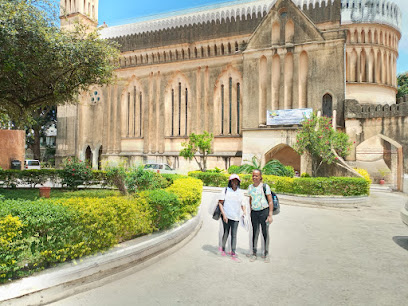
Peace Memorial Museum
Explore the rich history and culture of Zanzibar at the Peace Memorial Museum, a must-visit destination in Stone Town.
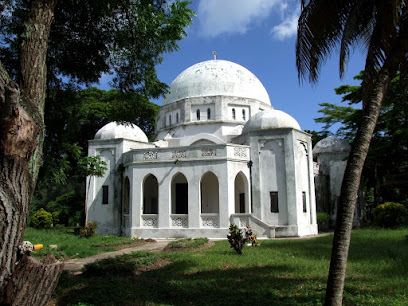
Zanzibar Ferry Terminal
Experience the vibrant Zanzibar Ferry Terminal, your gateway to breathtaking island adventures and cultural experiences in the heart of Stone Town.
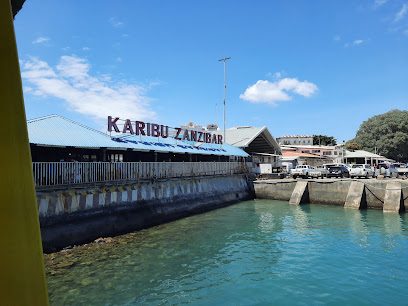
Jafferji House
Immerse yourself in Zanzibar's rich culture at Jafferji House, where traditional charm meets modern comfort in the heart of Stone Town.
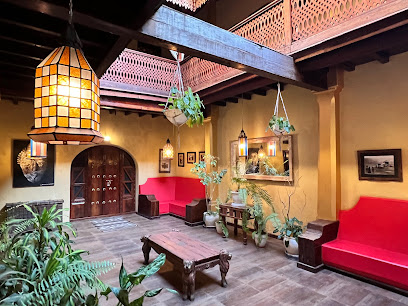
Unmissable attractions to see
Old Fort
Experience the historical allure of Old Fort in Zanzibar, a cultural landmark blending rich heritage with vibrant local life.
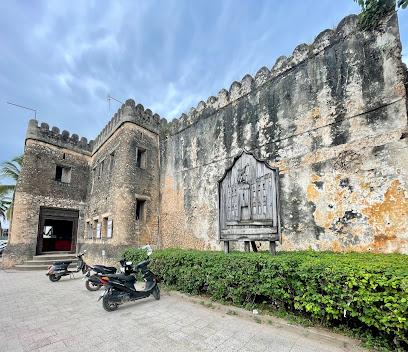
Jozani Forest
Discover the vibrant biodiversity and serene landscapes of Jozani Forest, a national reserve in Tanzania, home to unique wildlife and lush greenery.

Lubaacris tours & Safaris
Discover the beauty of Kendwa Beach in Zanzibar, where pristine sands meet vibrant waters, creating the ultimate tropical getaway.
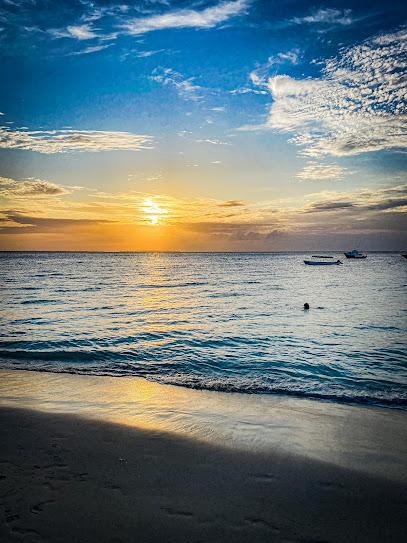
Kuza Cave
Explore the stunning Kuza Cave in Jambiani, Tanzania, where natural beauty and rich cultural heritage come together for an unforgettable adventure.
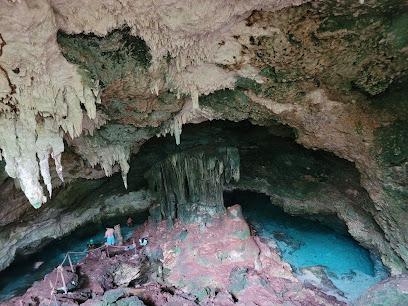
Karume Monument
Explore the serene beauty and rich history of the Karume Monument in Zanzibar, a tribute to the island's vibrant culture and heritage.
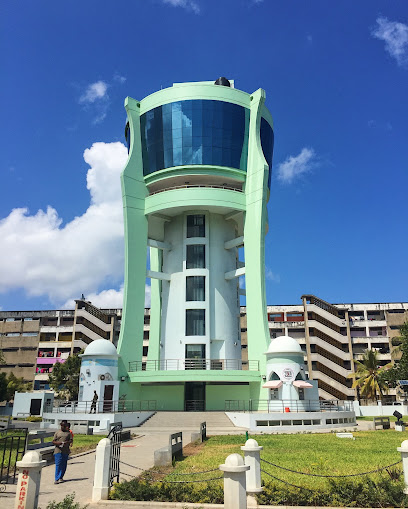
Mnemba Island
Experience the breathtaking beauty of Mnemba Island, a tropical paradise famous for its stunning beaches and vibrant marine life.
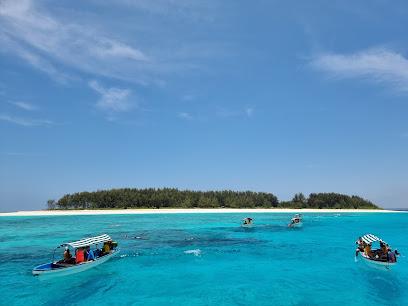
MAALUM
Explore the stunning beaches and vibrant marine life of Paje, Zanzibar, where adventure and relaxation blend seamlessly in paradise.
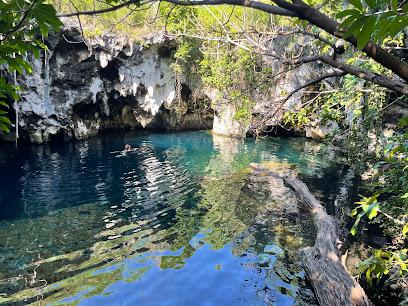
Tangawizi Spice Farm
Explore the aromatic world of spices at Tangawizi Spice Farm in Zanzibar, a unique journey into the heart of spice cultivation and local culture.
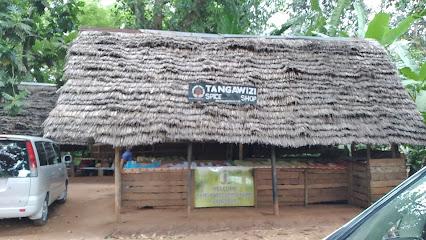
Freddie Mercury Museum
Explore the Freddie Mercury Museum in Zanzibar, a celebration of the legendary Queen frontman’s life, music, and lasting legacy in the heart of Stone Town.
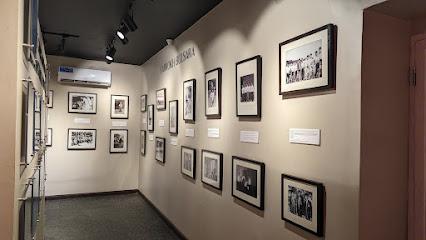
Gos tour in #zanzibar. Get your guide for slave market & Stone town city
Discover the emotional history of the Slave Market Exhibition Museum in Zanzibar, a vital site for understanding the island's past and cultural heritage.
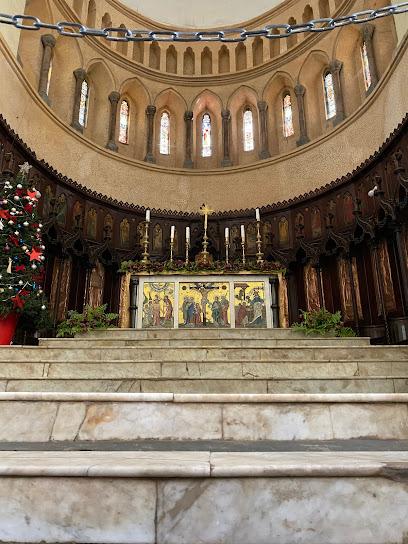
Kaole Ruins
Discover the ancient Kaole Ruins in Bagamoyo, Tanzania, where history and culture intertwine amidst breathtaking coastal beauty.
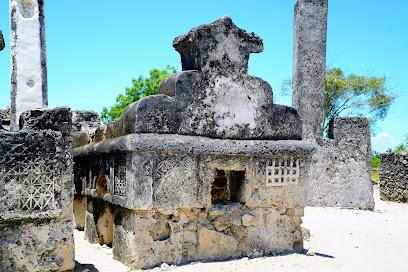
Forodhani Park
Experience the vibrant culture and stunning ocean views at Forodhani Park in Stone Town, Zanzibar, the perfect destination for food lovers and explorers.
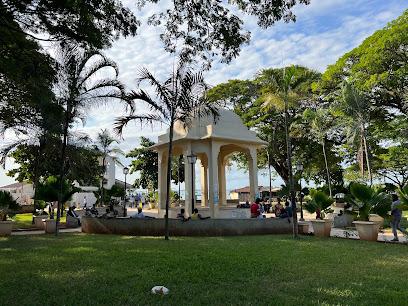
Freddie Mercury Museum
Discover the extraordinary life of Freddie Mercury at the Freddie Mercury Museum in Stone Town, Zanzibar – a celebration of music, culture, and heritage.
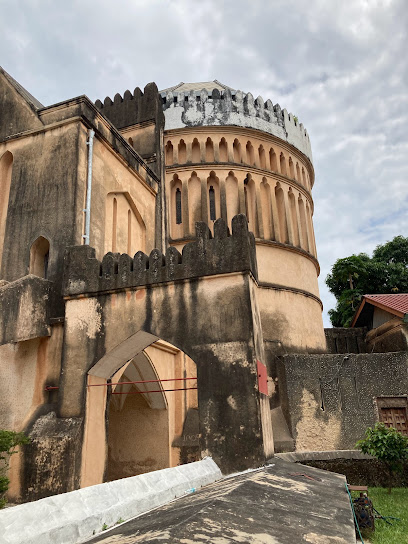
Jambiani Beach
Discover the serene beauty and vibrant culture of Jambiani Beach, Zanzibar's hidden gem for sun-seekers and adventure lovers.
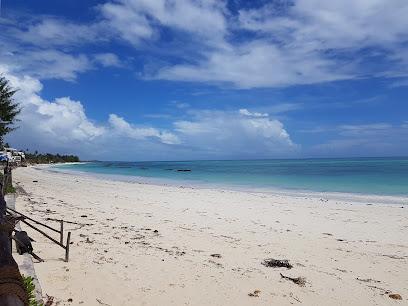
Paje Beach
Experience the breathtaking beauty of Paje Beach, a top destination in Zanzibar known for its white sands, vibrant waters, and adventurous spirit.
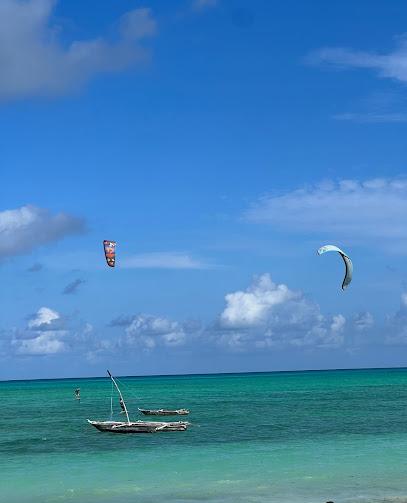
Essential places to dine
Lukmaan Restaurant
Discover authentic Zanzibari cuisine at Lukmaan Restaurant in Stone Town – where every dish tells a story.
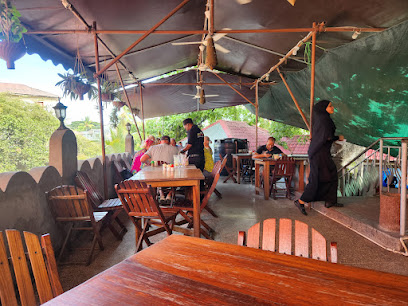
Cape Town Fish Market Zanzibar
Discover fresh seafood delights at Cape Town Fish Market Zanzibar – where every meal tells a story of local culture and flavor.
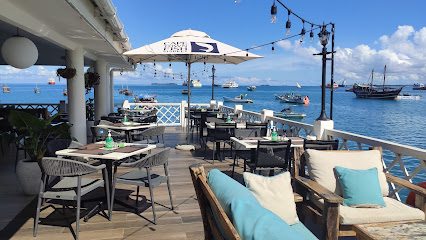
6 Degrees South
Experience authentic Zanzibari flavors at 6 Degrees South, where delicious cuisine meets stunning waterfront views in Stone Town.
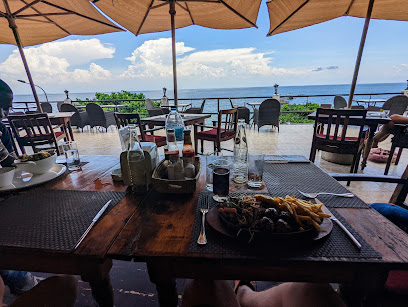
Beach House Zanzibar
Experience exquisite fusion cuisine at Beach House Zanzibar, where local flavors meet international flair in the heart of Stone Town.
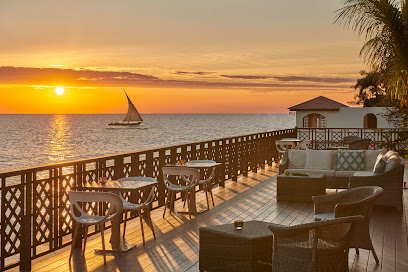
Stone Town Cafe
Experience authentic Zanzibari flavors at Stone Town Cafe - a cozy breakfast spot in historic Stone Town with delightful ambiance.
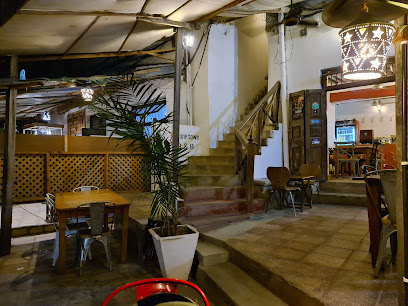
Da Luigi Ristorante - Pizzeria
Experience mouth-watering Mediterranean cuisine at Da Luigi Ristorante - Pizzeria in Zanzibar's vibrant Stone Town.
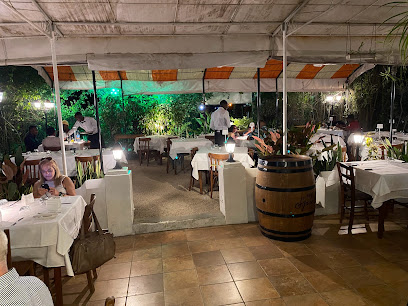
The Silk Route
Experience authentic Indian cuisine at The Silk Route in Stone Town, Zanzibar - where every dish tells a story.
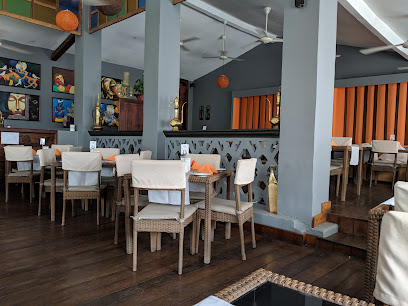
Archipelago Waterfront Zanzibar
Experience authentic Zanzibari cuisine at Archipelago Waterfront Zanzibar while enjoying breathtaking ocean views and vibrant local culture.
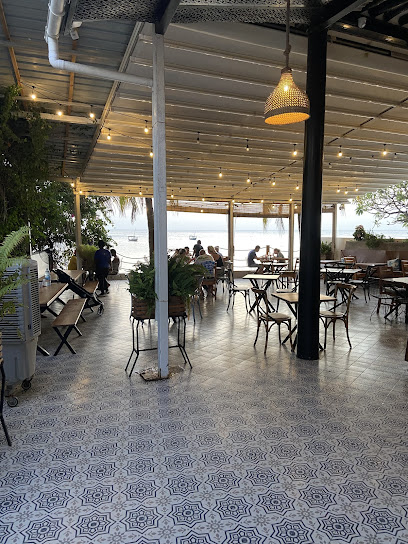
Livingstone Beach Restaurant
Discover authentic Zanzibari cuisine at Livingstone Beach Restaurant with breathtaking ocean views and warm hospitality.
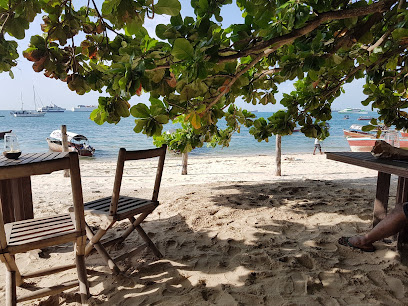
Masa Japanese Restaurant
Discover authentic Japanese flavors at Masa Japanese Restaurant in Stone Town - where tradition meets tropical charm.
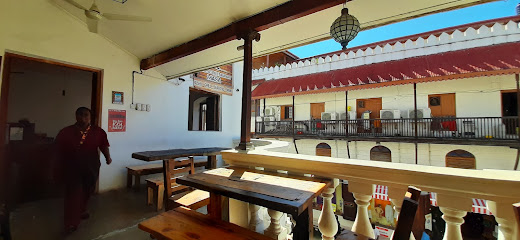
Secret Garden
Experience authentic Zanzibari cuisine in a tranquil garden setting at Secret Garden - your oasis in Stone Town.
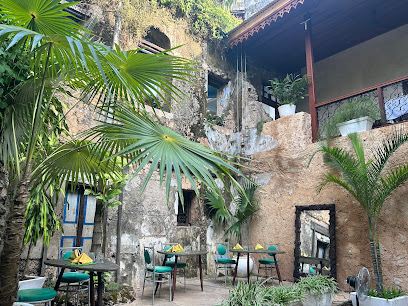
Harbour Indian Kitchen by Chili & Lime
Experience authentic Indian cuisine in the heart of Zanzibar's historic Stone Town at Harbour Indian Kitchen.
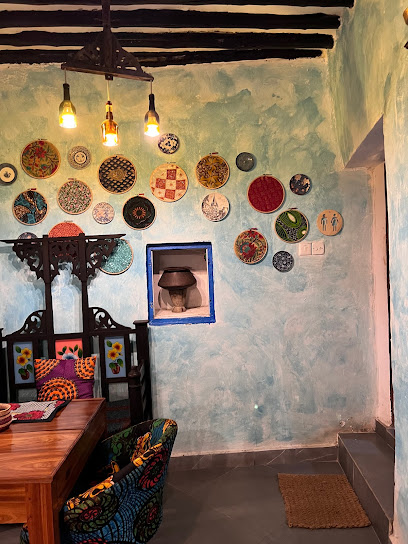
Krishna Food House
Discover authentic Zanzibari vegetarian cuisine at Krishna Food House in the heart of Stone Town.
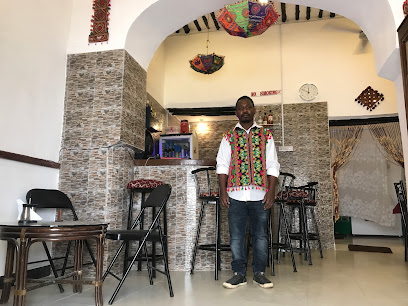
Ocean Grill Stone Town Beach
Discover Ocean Grill Stone Town Beach: A seafood paradise where culinary excellence meets stunning ocean views in Zanzibar.
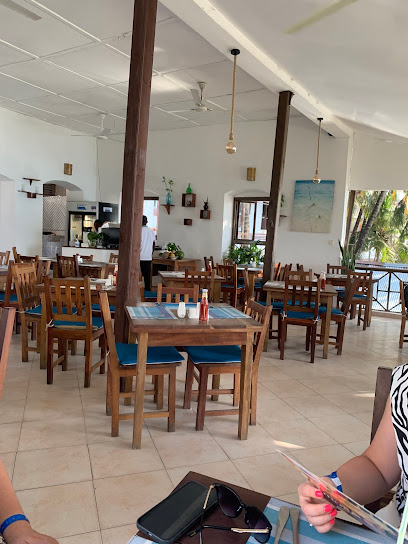
Abyssinian Maritim Ethiopian Traditional Restaurant
Discover authentic Ethiopian cuisine in Zanzibar's Stone Town at Abyssinian Maritim Restaurant - a delightful culinary adventure awaits!
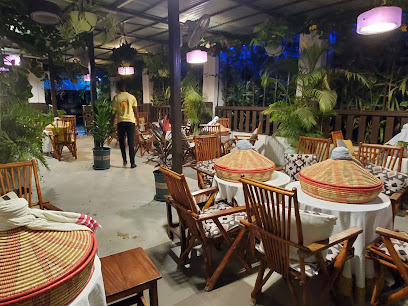
Markets, malls and hidden boutiques
Memories Of Zanzibar
Discover unique handcrafted souvenirs at Memories of Zanzibar, a must-visit store in Stone Town offering authentic local crafts and art.
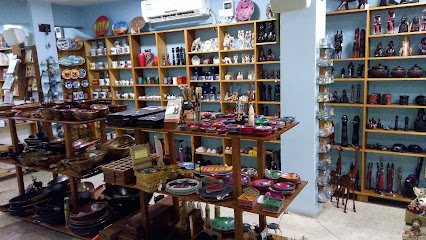
The Zanzibar Curio Shop
Explore the vibrant heritage of Zanzibar at The Zanzibar Curio Shop, where unique antiques and local crafts await every traveler.
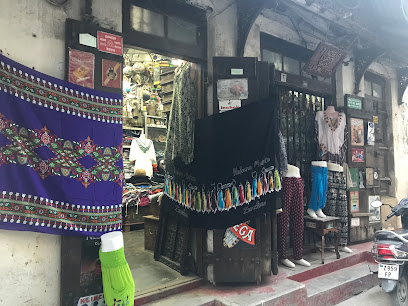
aromas of zanzibar
Discover a treasure trove of unique souvenirs and local crafts at Aromas of Zanzibar, where the island's rich culture comes alive in every product.
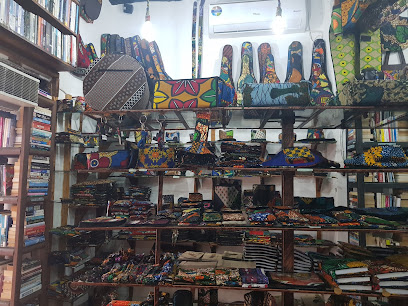
The Coins Shop
Explore The Coins Shop in Stone Town for exquisite jewelry and artistic handicrafts that reflect Zanzibar's vibrant culture.
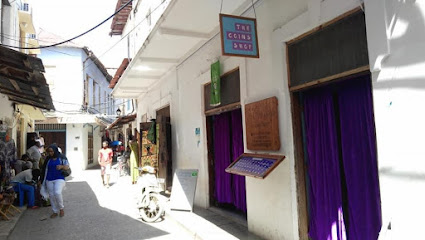
Stonetown Traders
Discover the charm of Stonetown Traders, a vibrant shopping mall in Zanzibar, where local crafts and culture come alive.
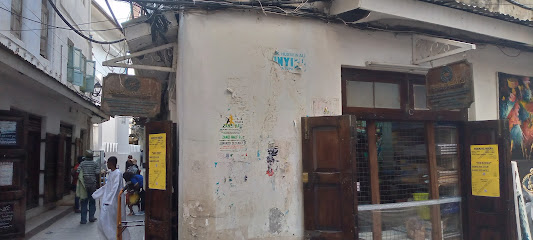
Zivansh Concept Store
Explore Zivansh Concept Store in Zanzibar for unique gifts, fashion, and authentic local craftsmanship that embodies the spirit of the island.
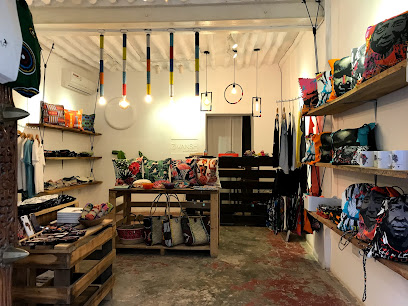
Gem Centre
Explore the Gem Centre in Stone Town for exquisite handcrafted jewelry that captures the essence of Zanzibar's rich cultural heritage.
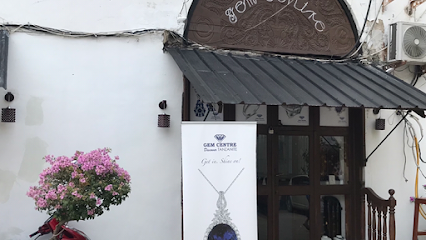
Monica Boutique
Discover the vibrant styles of Zanzibar at Monica Boutique, a premier clothing store in the heart of Stone Town, offering unique fashion pieces and accessories.
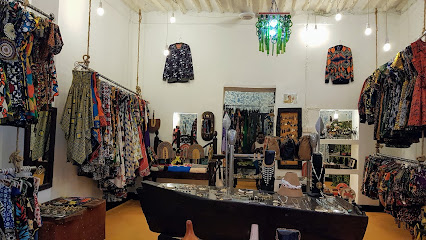
Kumi Gifts & Treats
Shop unique handcrafted souvenirs and Zanzibari delights at Kumi Gifts & Treats in the heart of Stone Town.
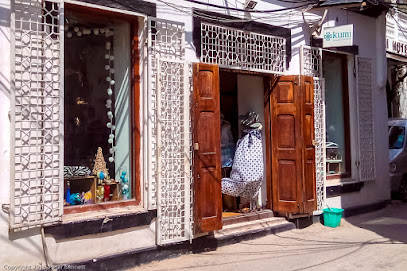
Doreen Mashika
Explore the vibrant world of fashion at Doreen Mashika, where unique clothing and accessories meet the rich heritage of Zanzibar.
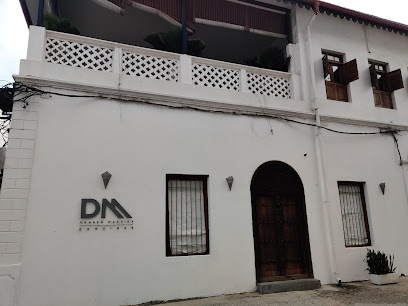
East Africa Merchants Co.
Explore East Africa Merchants Co. in Stone Town, Zanzibar, where unique jewelry, crafts, and local flavors come together in a vibrant shopping experience.
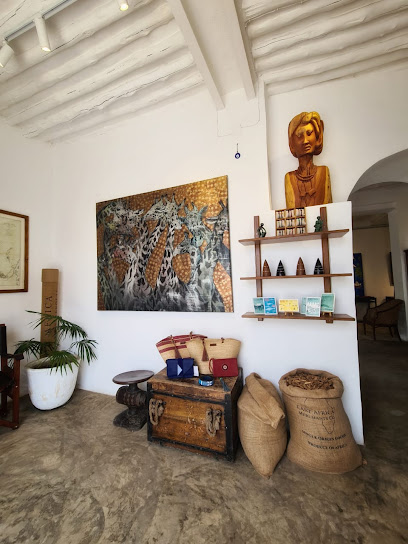
Om Namah Shivai Gift and Souvenir
Explore Om Namah Shivai Gift and Souvenir in Stone Town, Zanzibar for unique local crafts and memorable keepsakes.
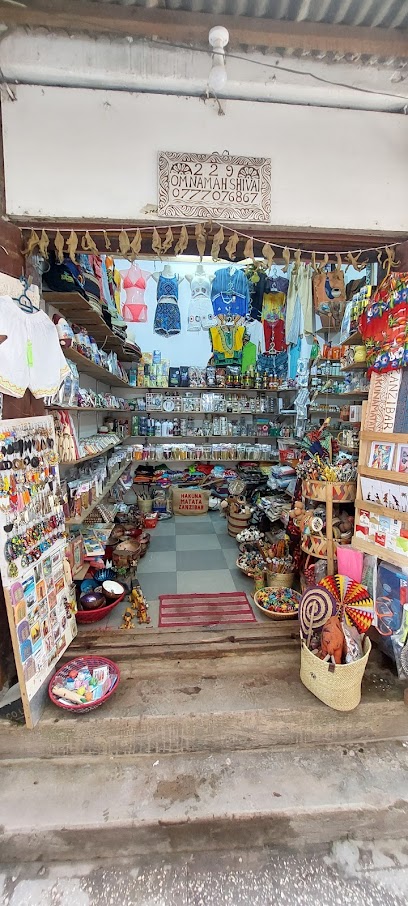
The Gallery Curio Shop
Explore the essence of Zanzibar at The Gallery Curio Shop, where unique crafts and local artistry await every traveler.
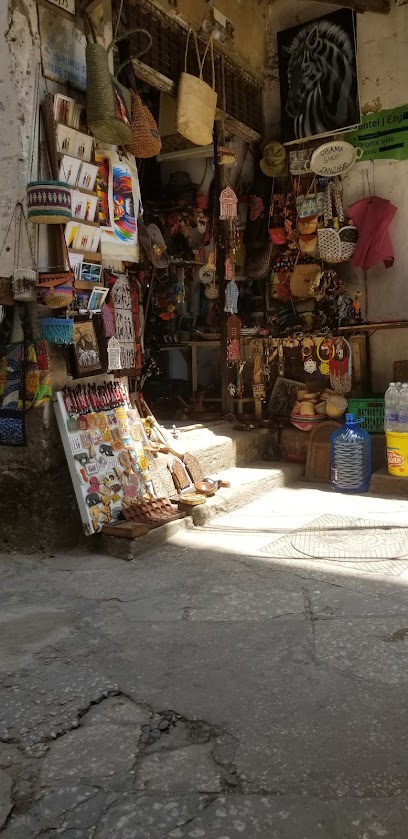
Black sauce zanzibar
Explore Black Sauce Zanzibar for a unique shopping experience filled with local fashion and vibrant textiles in the heart of Stone Town.
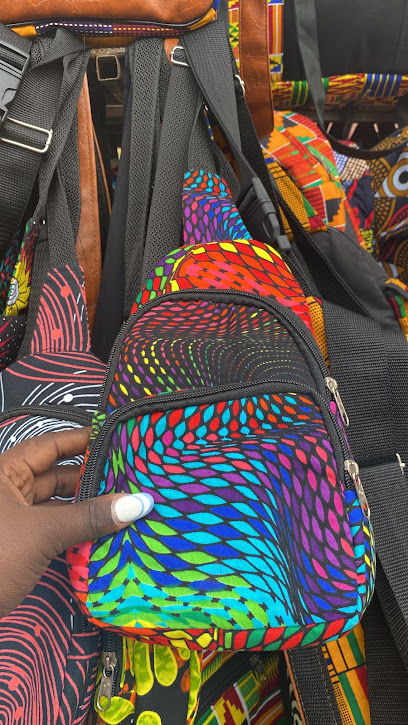
Moto - Community Handicrafts and Dada - Healthy Food and Natural Cosmetics
Discover the heart of Zanzibar's creativity at Moto - Community Handicrafts, where local artisans showcase their artistry through unique handicrafts and natural products.
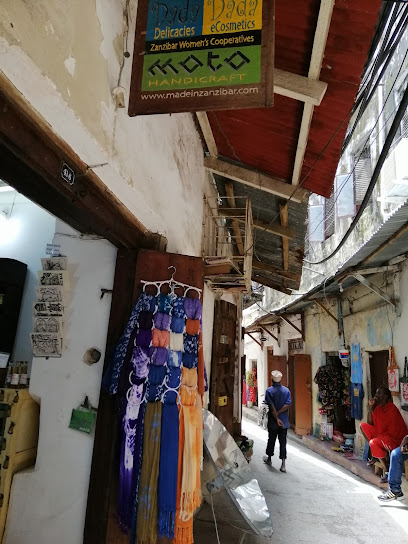
Essential bars & hidden hideouts
6 Degrees South
Experience the vibrant flavors of Zanzibar at 6 Degrees South, a waterfront restaurant offering a delightful fusion of local and international cuisine.
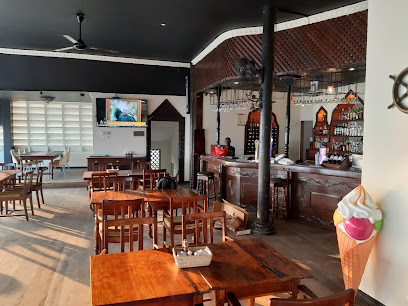
Beach House Zanzibar
Experience the fusion of flavors and vibrant atmosphere at Beach House Zanzibar, a must-visit culinary destination in Stone Town.
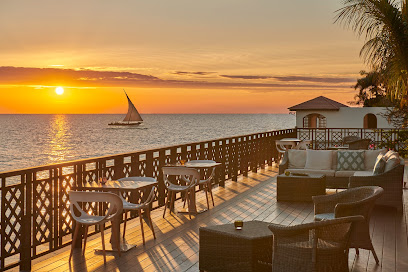
Mercury's Bar
Discover the lively Mercury's Bar in Zanzibar, where local flavors meet stunning ocean views for an unforgettable dining experience.
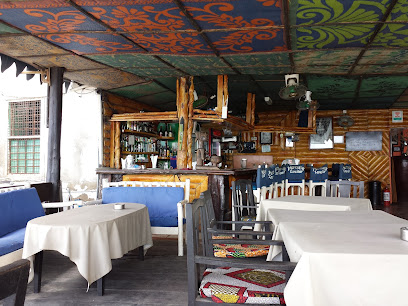
Africa House Hotel
Discover the charm of Zanzibar at Africa House Hotel, where tradition meets elegance in the heart of Stone Town.

Livingstone Beach Restaurant
Discover the vibrant flavors of Zanzibar at Livingstone Beach Restaurant, where local cuisine meets stunning ocean views for an unforgettable dining experience.
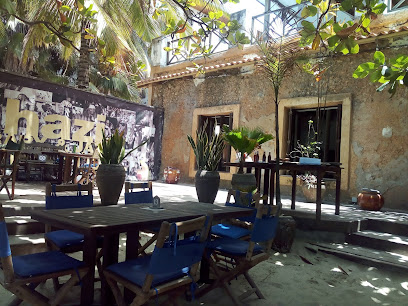
Patamu (Tatu)
Experience the authentic flavors of Zanzibar at Patamu (Tatu), where local culinary traditions meet warm hospitality.
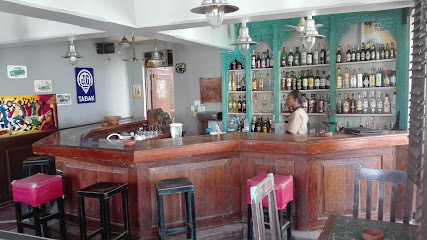
Travellers Cafe
Experience the vibrant flavors of Zanzibar at Travellers Cafe, where local cuisine meets international flair in a charming atmosphere.
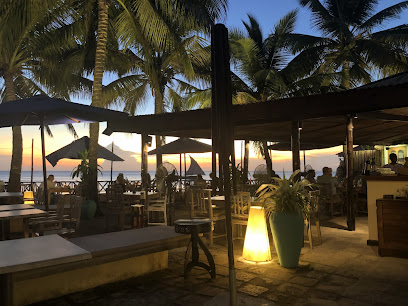
The Sunset Bar - Africa House Hotel
Experience the vibrant flavors of Zanzibar at The Sunset Bar, where breathtaking ocean views meet exquisite dining in the heart of Stone Town.
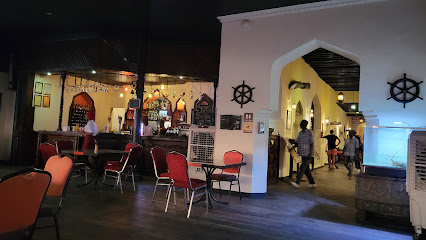
The Sunrise Restaurant
Experience the charming ambiance of The Sunrise Restaurant in Stone Town, Zanzibar, where local flavors and refreshing drinks await every traveler.
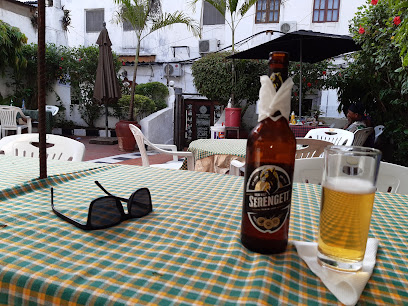
Vivi Café
Discover the culinary delights of Vivi Café in Zanzibar, where local flavors meet a vibrant grill dining experience in the heart of Stone Town.
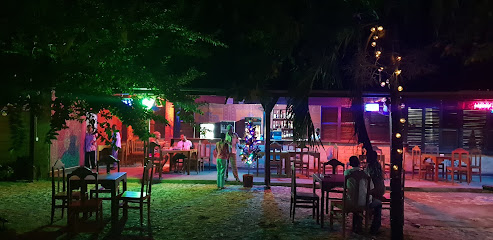
Masahani bar
Experience the vibrant energy of Zanzibar at Masahani Bar, where stunning ocean views meet delicious cocktails and local culture.
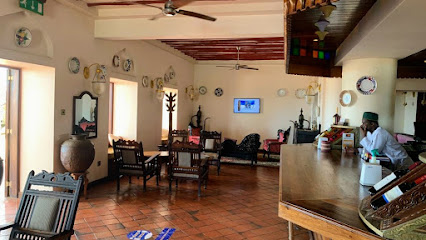
Living Room at Park Hyatt Zanzibar
Experience the elegance of Zanzibar at Living Room, Park Hyatt, where local flavors and crafted cocktails blend in a stylish bar setting.
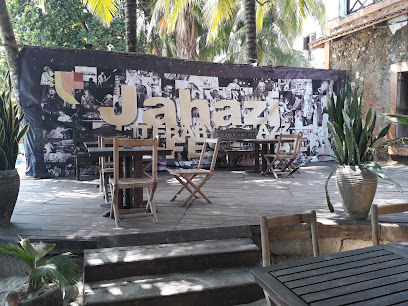
Floating Bar
Discover the Floating Bar in Zanzibar, a unique floating oasis offering breathtaking views, refreshing drinks, and an unforgettable island experience.
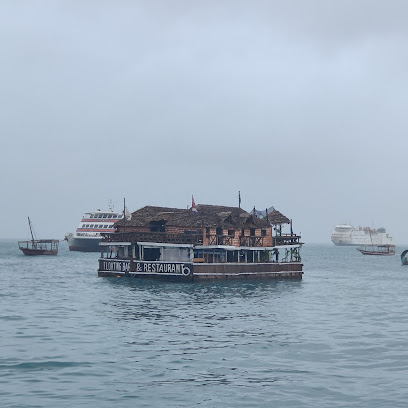
Baraza Shisha Bar
Experience the vibrant nightlife and rich culture of Stone Town at Baraza Shisha Bar, where relaxation meets tradition.
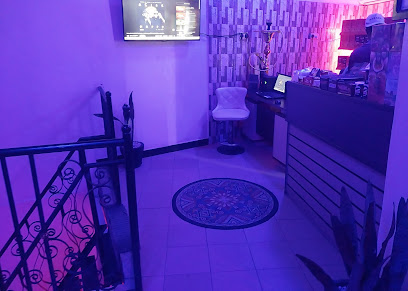
Local Phrases
-
- HelloJambo
[jahm-boh] - GoodbyeKwaheri
[kwah-heh-ree] - YesNdio
[nn-dee-oh] - NoHapana
[hah-pah-nah] - Please/You're welcomeTafadhali
[tah-fah-dah-lee] - Thank youAsante
[ah-sahn-teh] - Excuse me/SorrySamahani
[sah-mah-hah-nee] - How are you?Habari gani?
[hah-bah-ree gah-nee] - Fine. And you?Safi. Na wewe?
[sah-fee. nah weh-weh] - Do you speak English?Unazungumza Kiingereza?
[oo-nah-zoon-goom-zah kee-een-geh-reh-zah] - I don't understandSieelewi
[see-eh-leh-wee]
- HelloJambo
-
- I'd like to see the menu, pleaseNingependa kuona menyu, tafadhali
[nee-neh-pen-dah coo-oh-nah meh-nyoo, tah-fah-dah-lee] - I don't eat meatMimi siili nyama
[mee-mee see-ee-lee nyah-mah] - Cheers!Afya!
[ah-fyah] - I would like to pay, pleaseNingependa kulipa, tafadhali
[nee-neh-pen-dah koo-lee-pah, tah-fah-dah-lee]
- I'd like to see the menu, pleaseNingependa kuona menyu, tafadhali
-
- Help!Usaidizi!
[oo-sah-ee-dee-zee] - Go away!Nenda zako!
[nen-dah zah-koh] - Call the Police!Piga simu polisi!
[pee-gah see-moo poh-lee-see] - Call a doctor!Piga simu daktari!
[pee-gah see-moo dahk-tah-ree] - I'm lostNimepotea
[nee-meh-poh-teh-ah] - I'm illMimi ni mgonjwa
[mee-mee nee m-gohn-jwah]
- Help!Usaidizi!
-
- I'd like to buy...Ningependa kununua...
[nee-neh-pen-dah koo-noo-noo-ah] - I'm just lookingNatazama tu
[nah-tah-zah-mah too] - How much is it?Ni bei gani?
[nee bay gah-nee] - That's too expensiveHuo ni ghali sana
[hoo-oh nee gah-lee sah-nah] - Can you lower the price?Unaweza kupunguza bei?
[oo-nah-weh-zah koo-poon-goo-zah bay]
- I'd like to buy...Ningependa kununua...
-
- What time is it?Saa ngapi?
[sah-ah ngah-pee] - It's one o'clockNi saa moja
[nee sah-ah moh-jah] - Half past (10)Nusu kumi
[noo-soo koo-mee] - MorningAsubuhi
[ah-soo-boo-hee] - AfternoonMchana
[m-chah-nah] - EveningJioni
[joh-ee-nee] - YesterdayJana
[jah-nah] - TodayLeo
[leh-oh] - TomorrowKesho
[keh-shoh] - 1Moja
[moh-jah] - 2Mbili
[mm-bee-lee] - 3Tatu
[tah-too] - 4Nne
[nn-neh] - 5Tano
[tah-noh] - 6Sita
[see-tah] - 7Saba
[sah-bah] - 8Nane
[nah-neh] - 9Tisa
[tee-sah] - 10Kumi
[koo-mee]
- What time is it?Saa ngapi?
-
- Where's a/the...?Iko wapi...?
[ee-koh wah-pee] - What's the address?Anwani ni ipi?
[ahn-wah-nee nee ee-pee] - Can you show me (on the map)?Unaweza kunionyesha (kwenye ramani)?
[oo-nah-weh-zah koo-nee-oh-nyeh-shah kweh-neh rah-mah-nee] - When's the next (bus)?Basi la pili litakuja lini?
[bah-see lah pee-lee lee-tah-koo-jah lee-nee] - A ticket (to ....)Tiketi (kwenda ....)
[tee-keh-tee kwen-dah]
- Where's a/the...?Iko wapi...?
History of Stone Town
-
Stone Town, also known as Mji Mkongwe, was established in the 19th century on the western coast of Unguja, the main island of the Zanzibar Archipelago. It emerged as a key port city due to its strategic position along the Indian Ocean trade routes, attracting traders from Arabia, Persia, India, and later Europe.
-
In 1698, the Sultanate of Oman took control of Stone Town, transforming it into a bustling center for the clove trade. The Omani sultans moved their capital to Zanzibar in 1840, further solidifying Stone Town's status as a hub of commerce and culture. The clove plantations, worked by enslaved Africans, became a vital part of the local economy.
-
Stone Town was a major center for the East African slave trade. Slaves were brought from the interior of Africa to Zanzibar, where they were then sold and shipped to various parts of the world. The Anglican Cathedral, built on the site of a former slave market, stands as a poignant reminder of this dark chapter in the town's history.
-
In 1890, Zanzibar became a British protectorate following the Heligoland-Zanzibar Treaty between Britain and Germany. The British influence ushered in several reforms, including the abolition of the slave trade. Stone Town saw the construction of several colonial buildings during this period, adding to its architectural diversity.
-
On January 12, 1964, the Zanzibar Revolution took place, overthrowing the Sultanate and ending centuries of Arab dominance. The revolution led to the establishment of the People's Republic of Zanzibar and Pemba, which later merged with Tanganyika to form the United Republic of Tanzania. The revolution had a profound impact on the social and political landscape of Stone Town.
-
In 2000, Stone Town was designated a UNESCO World Heritage Site in recognition of its unique blend of Arab, Persian, Indian, and European elements. The town's labyrinthine streets, historic buildings, and vibrant markets continue to attract visitors from around the world, eager to explore its rich cultural heritage.
-
Stone Town's diverse population reflects its history as a crossroads of various cultures. The Swahili culture, with its distinct language, cuisine, and traditions, is a blend of African, Arab, Persian, and Indian influences. Festivals such as the Zanzibar International Film Festival and Sauti za Busara celebrate this cultural fusion, drawing artists and audiences globally.
Stone Town Essentials
-
Stone Town is located on the western coast of Unguja, the main island of the Zanzibar Archipelago in Tanzania. The nearest airport is Abeid Amani Karume International Airport (ZNZ), approximately 8 kilometers from Stone Town. You can get direct flights from major cities in East Africa and connecting flights from other international destinations. From the airport, you can take a taxi or a shuttle service to Stone Town, which typically takes around 15-20 minutes. Alternatively, you can reach Stone Town by ferry from Dar es Salaam. The ferry ride takes around 2 hours.
-
Stone Town is best explored on foot due to its narrow, winding streets. For longer distances, taxis are readily available. Make sure to agree on a fare before starting your journey as taxis in Stone Town do not use meters. Public minibuses, known as 'daladalas', are a cost-effective way to travel around the island but can be crowded and less comfortable. Renting a bicycle or a scooter is another popular option for exploring both Stone Town and the rest of Zanzibar.
-
The official currency in Tanzania is the Tanzanian Shilling (TZS). US Dollars are also widely accepted in hotels, restaurants, and tourist shops. Credit cards are accepted in many places, but smaller vendors and markets may require cash. ATMs are available in Stone Town, but it's advisable to carry some cash with you, especially if you plan to travel to more remote areas. Be aware that some ATMs may charge withdrawal fees.
-
Stone Town is generally safe for tourists, but it is wise to take standard precautions. Avoid walking alone at night, especially in poorly lit areas. Petty crimes such as pickpocketing can occur, so keep your belongings secure and be cautious in crowded places. The Forodhani Gardens and Darajani Market are popular spots but can attract pickpockets. Always use reputable taxi services and avoid accepting rides from strangers.
-
In case of emergency, dial 112 for immediate assistance. The nearest hospital is Mnazi Mmoja Hospital, located in Stone Town, which provides medical services. For minor health issues, there are several pharmacies around the town. It is recommended to have travel insurance that covers medical emergencies. If you lose your passport, contact your country's embassy or consulate in Dar es Salaam.
-
Fashion: Do dress modestly, especially when visiting religious sites. Avoid wearing revealing clothing. Religion: Do respect local customs and traditions. Always remove your shoes before entering a mosque and dress conservatively. Public Transport: Do be mindful of local etiquette. Don’t argue with the driver or other passengers. Greetings: Do greet people with a handshake and a warm smile. Using the right hand is considered polite. Eating & Drinking: Do try local delicacies and accept food offerings graciously. Don’t eat or drink in public during Ramadan if you visit during this holy month.
-
To experience Stone Town like a local, visit the Darajani Market for fresh produce and spices. Engage with locals and don’t hesitate to ask for recommendations on where to eat or what to see. Take a stroll along the waterfront at Forodhani Gardens in the evening to enjoy local street food. Don’t miss visiting the Old Fort and the House of Wonders for a glimpse into Zanzibar’s rich history. For a unique experience, consider taking a traditional dhow cruise at sunset.
Trending Landmark in Stone Town
-
Old Fort
-
Zanzibar Spice Community Shop
-
Cape Town Fish Market Zanzibar
-
Darajani Bazaar
-
Stone town market
-
Jamhuri Gardens
-
The Silk Route
-
Old Slave Market/Anglican Cathedral
-
Forodhani Park, Zanzibar
-
Secret Garden
-
St Joseph's Cathedral
-
Christ Church Cathedral
-
Peace Memorial Museum
-
Zanzibar Ferry Terminal
-
Jafferji House
Nearby Cities to Stone Town
-
Things To Do in Zanzibar City
-
Things To Do in Dar es Salaam
-
Things To Do in Tanga
-
Things To Do in Morogoro
-
Things To Do in Diani Beach
-
Things To Do in Mombasa
-
Things To Do in Malindi
-
Things To Do in Moshi
-
Things To Do in Dodoma
-
Things To Do in Arusha
-
Things To Do in Iringa
-
Things To Do in Lamu
-
Things To Do in Singida
-
Things To Do in Nairobi
-
Things To Do in Naivasha


















